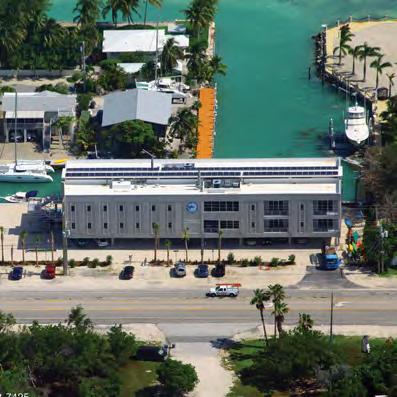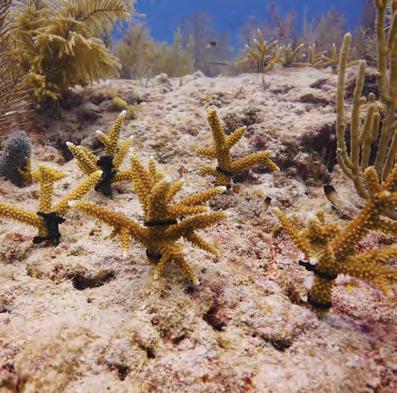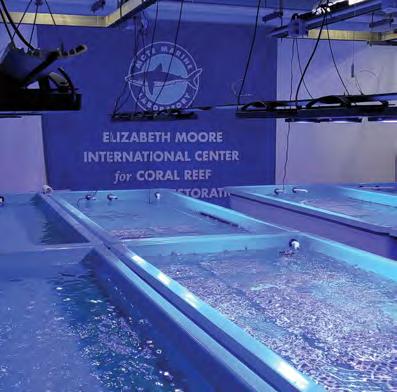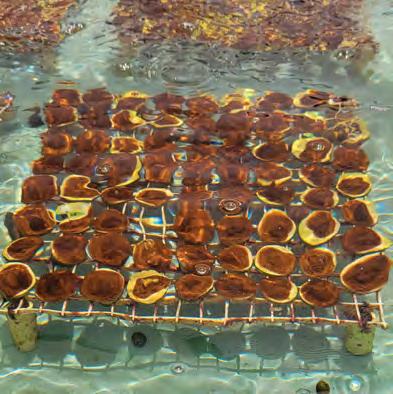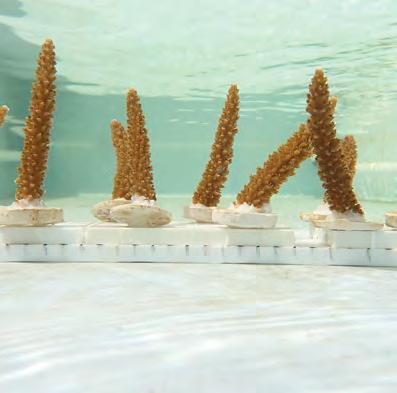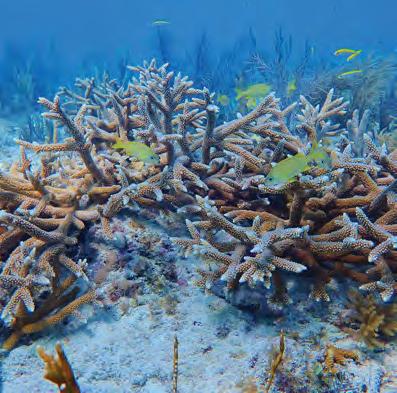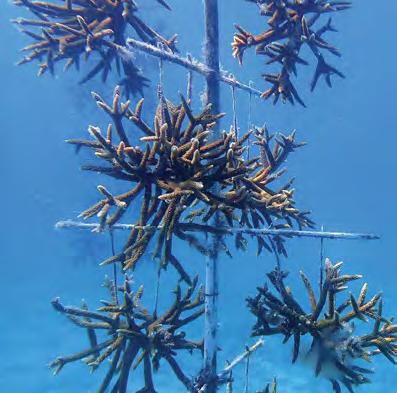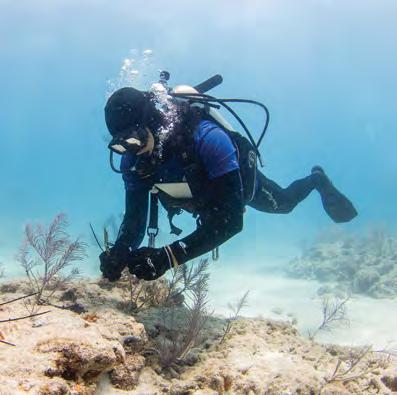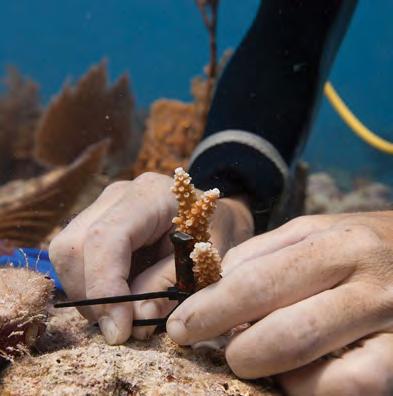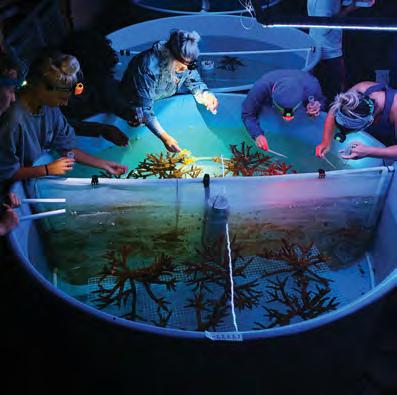
2 minute read
MOTE MARINE LABORATORY IN THE FLORIDA KEYS
RACING TO SAVE CORAL, ‘SOMETHING TROUBLING IS HAPPENING’
Written by: Dave Kelly
Below the sparkling clear waters off the Florida Keys, something troubling is happening. Healthy corals — normally dark and vibrant — are dying at an alarming rate. By some estimates, more than 90% of the healthy corals of the past are gone, replaced by dead corals that appear as large white patches on the Atlantic floor.
The situation is the same all along the Florida Reef Tract, which stretches 360 miles from the Dry Tortugas to Port St. Lucie on the east coast.
The staff at Mote Marine Laboratory’s Elizabeth Moore International Center for Coral Reef Research & Restoration — known as IC2R3 — is working day and night to address this alarming situation. The laboratory, right in the heart of Florida’s Lower Keys, is a fully equipped marine science facility dedicated to research and education with a focus on the coral problem. Within easy access of nearby corals protected by National Wildlife Refuges and NOAA’s Florida Keys National Marine Sanctuary, it offers these scientists efficient and safe research abilities.
The impressive 19,000-square-foot facility is home to over two dozen permanent staff, as well as the same number of marine science interns. They offer 25 different science programs, most concentrating on the coral reefs in the Florida Keys.
The building itself consists of labs, offices and dormitories for up to 46 visitors. There are indoor and outdoor seawater systems, environmental control rooms, raceways and experimental tanks for research on ocean acidification and environmental impacts on reef organisms such as corals.
Since such critical work was taking place in the Keys, the building is constructed with precast concrete to withstand a Category 5 hurricane, enabling it to survive 2017’s Hurricane Irma with minimal damage. Its eco-friendly design includes solar panels, a rainwater capture system and high-efficiency heating and cooling.
We met up with Allison Delashmit, director of Regional Operations, who helped us understand the center’s mission. She explained that more than 20 species of coral in the wild are suffering from a mysterious ailment called stony coral tissue loss disease, or SCTLD. She then led us to the wetlabs and experimental tanks to begin educating us on a process they are implementing called “outplanting,” where labgrown, disease-resistant corals are planted in the wild.
In one method, immature corals are attached to discs and placed in indoor wetlabs to begin the growth process. Molecular equipment processes and prepares samples for generation sequencing and genomics, then conditions are set to match the natural environment as much as possible.
Mote Marine's impressive 19,000-square-foot facility is home to over two dozen permanent staff, as well as the same number of marine science interns. They offer 25 science programs, most concentrating on critical coral reef research in the Florida Keys. It's a race against time. And you can help by donating or purchasing a Florida Save Our Reefs license tag.
